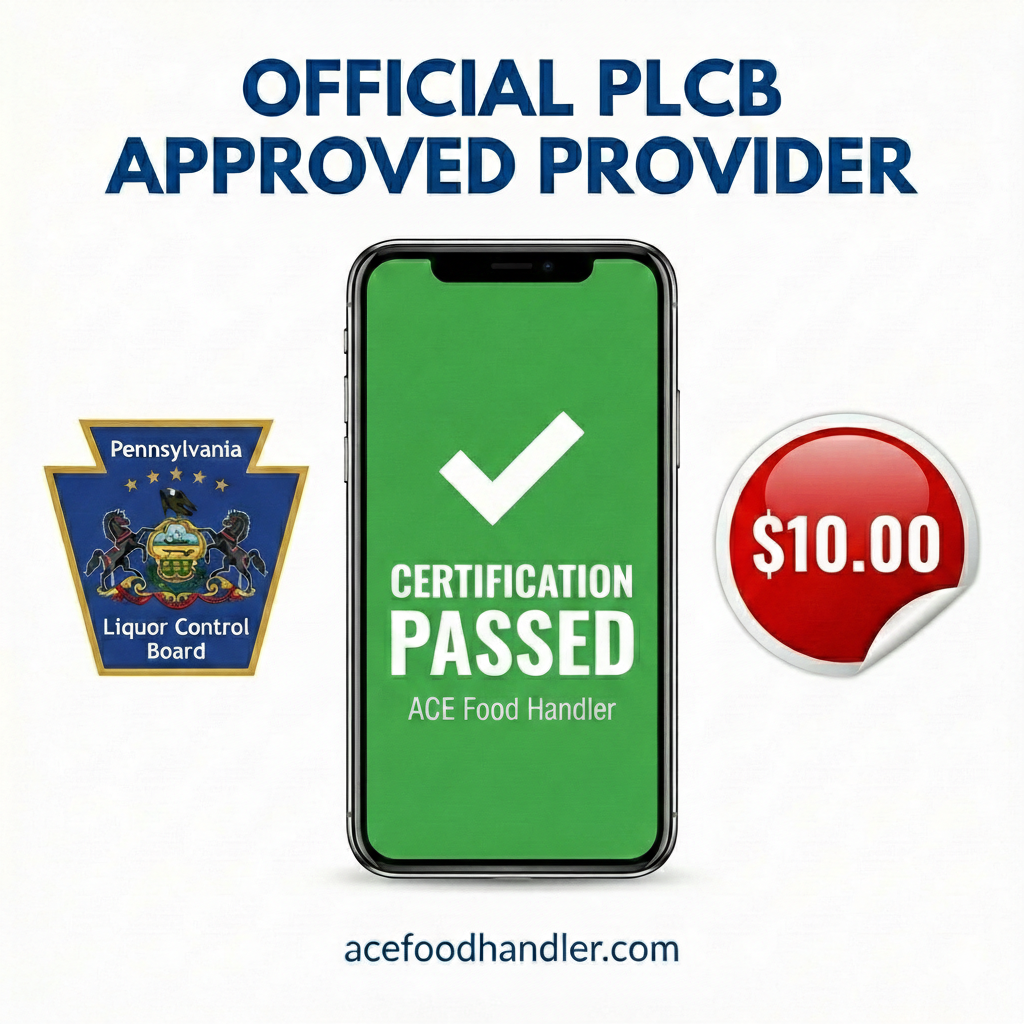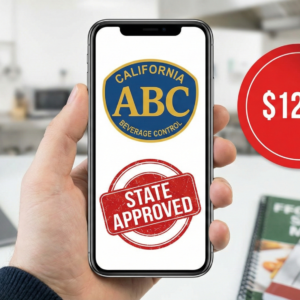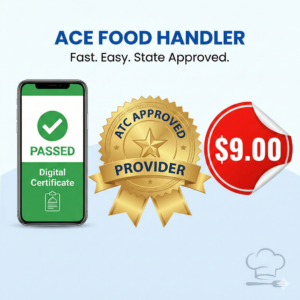Description
Pennsylvania RAMP Server/Seller Training (Official PLCB Approved)
Do you need to get RAMP Certified today?
If you work in the Pennsylvania alcohol service industry, you are likely required to complete RAMP Server/Seller Training. The Pennsylvania Liquor Control Board (PLCB) mandates that new hires at RAMP-certified establishments complete this training within 6 months of being hired. However, many employers now require it before your first shift.
Is ACE Food Handler a PLCB Approved Provider?
Yes. We are an official, state-licensed provider. Our curriculum is fully approved by the Pennsylvania Liquor Control Board (PLCB). You can verify our valid standing on the PA.gov website under our official instructor name, Manny Campos.
How does the “Instant Roster” reporting work?
This is the most critical part of your certification. Unlike other schools that wait days to process paperwork, we upload your exam results to the PLCB database within 24 hours. This ensures your employer stays compliant and you can start working immediately without delays.
Why Choose ACE for Your PA RAMP Certification?
- 100% Online & Mobile Friendly: Complete the course on your smartphone, tablet, or laptop. No webcam or proctor is required.
- Unlimited Exam Retakes: You must score 80% or higher to pass, but don’t worry—you get unlimited attempts for free.
- Instant Digital Certificate: Download your proof of training immediately after passing.
- Best Value in PA: Get official PLCB training for only $15.00 (Competitors like ServSafe and 360Training charge $25 – $30).
Who is Required to Take This Course?
This “Server/Seller” training is legally required for anyone who serves alcohol or checks IDs at a RAMP-certified establishment. This includes:
- Bartenders & Barbacks
- Servers & Waitstaff
- Bouncers, Doormen & Security Personnel
- Liquor Store Clerks & Cashiers
- Event Staff & Caterers
Valid Statewide in Pennsylvania
Because this is the official PLCB Server/Seller curriculum, your ACE certificate is valid in every city and county in the Commonwealth. You do not need a separate certificate for different cities. This course covers:
- Philadelphia
- Pittsburgh
- Allentown
- Erie
- Reading
- Scranton
- Bethlehem
- Lancaster
- Harrisburg
Need to certify your whole bar staff? Click here for Corporate Accounts to get bulk pricing and easy roster management for your business.




Reviews
There are no reviews yet.